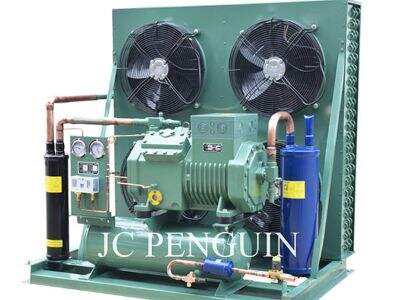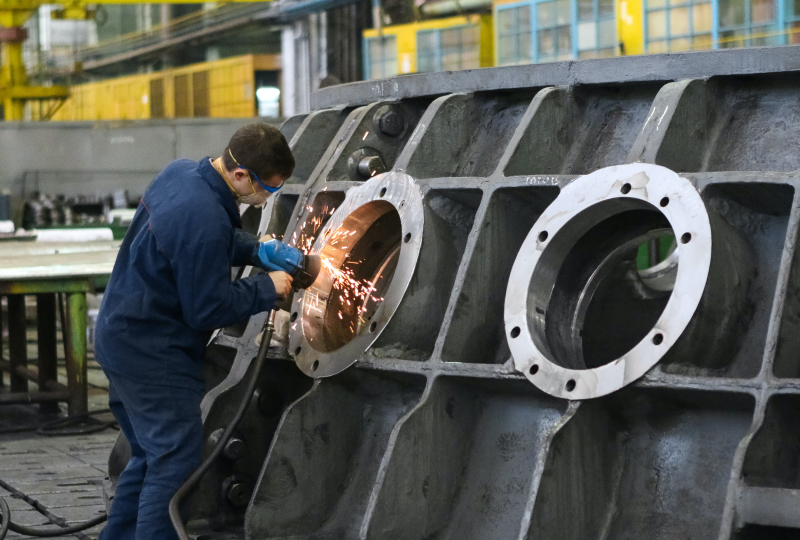Ever wondered how air conditioners affect nature? Air Conditioning: Heating, Ventilation and Air Conditioning. A HVAC system is consists of multiple parts, and one of the main components is the condensing unit. This unit cools the air in our homes so that we can comfortably live. But have you ever thought about whether using this equipment is environmentally harmful? That’s a good question to consider!
How Condensing Units Work
Now as to how a condensing units work and its role on environmental change. The condensing unit is part of the HVAC system outside of your house. It consists of three major elements: the compressor, the fan, and the condenser. As air inside your home becomes warm, it is drawn inside the HVAC system through vents. Next, this warm air flows across something called the evaporator coil. Here, a special liquid known as refrigerant carries heat away from the air.
After it’s cooled, air is pushed back into your house through another series of vents, keeping your home nice and comfortable. At the same time, the warm refrigerant gas that absorbed the heat travels outside to the condensing unit. The fan on the condensing unit propels air across the condenser coil forcing the refrigerant gas to return to a liquid state. That cooling and conversion back into a liquid causes heat to be generated and expelled into the air surrounding the condensing unit. The condensing unit is constantly running to keep your home cool, but also have an effect on the air that surrounds it.
Understanding How It Affects Nature
Now that we know how condensing units operate, it’s time to discuss how they impact the environment. The first thing to know is that a condensing unit requires electricity to work. Much of the energy we use comes from burning fossil fuels — coal, oil and so on. Burning these fuels to generate power can contribute to air pollution. The type of pollution that is generated is harmful because it releases gases into the atmosphere, causing climate change.
The heat released by the condensing unit can also result in much hotter temperatures for the city than the nearby rural areas. This phenomenon is called an urban heat island. Urban heat islands can be super uncomfortable — and dangerous — for the people who live in them, particularly during hot weather. The added heat can make it more difficult for people to stay cool, leading to health problems. It also impacts the plants and animals that live in cities, where they could have difficulty surviving in the hotter temperatures.
Things We Can Do
Although HVAC systems and condensing units may have certain negative environmental influences, there are numerous measures taken regarding this as well. Using energy-efficient HVAC systems is an effective way in this case. These systems are engineered to consume less energy while maintaining a comfortable home environment. They also use less energy, which helps reduce greenhouse gas emissions and is great for the planet.
You can also help by taking good care of your H.V.A.C. system. Regular maintenance is crucial — a well-maintained system runs better and consumes less energy. This means it won’t be so polluting to the air. Finally, when the time comes to dispose of your old HVAC system, it is vital to do so in a safe and responsible manner. Older systems can also contain refrigerants that can be harmful to the environment when not properly handled.
Do Condensing Units Have A Negative Impact On The Environment?
Then, are condensing units environmentally friendly? There is no simple yes or no answer to the question. They do have negative effects, but they also serve a vital function of keeping us comfortable in our homes, which is especially needed throughout scorching summer months. And energy must be used with systems that are energy-efficient and maintained properly to minimize their environmental footprint. We must reconcile our comfort with air conditioning with the health of our planet.
To sum it up, although condensing units can be harmful towards the environment, many things can be done to reduce their impact. We can also contribute to protecting our planet through the use of energy-efficient systems, getting them in for regular maintenance and responsible disposal of any old systems. Be sure to remember that every little bit helps when it comes to saving the Earth for generations to come. Let us strive for a healthier world, together!

 AR
AR
 FR
FR
 DE
DE
 JA
JA
 KO
KO
 PL
PL
 PT
PT
 RU
RU
 ES
ES
 TL
TL
 ID
ID
 VI
VI
 TH
TH
 TR
TR
 MS
MS
 BN
BN
 LO
LO
 MN
MN
 MY
MY
 KK
KK
 TG
TG
 UZ
UZ
 KY
KY





